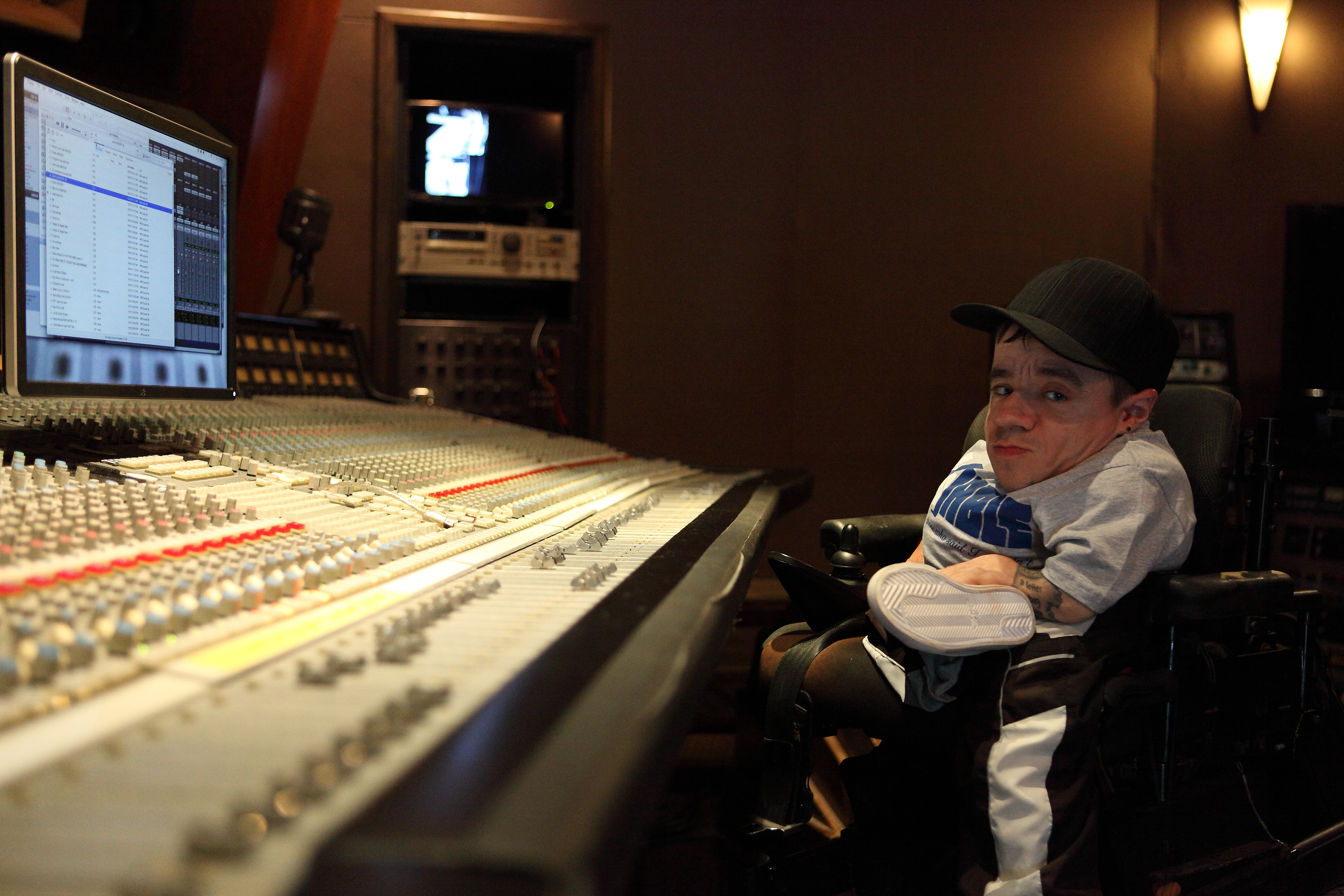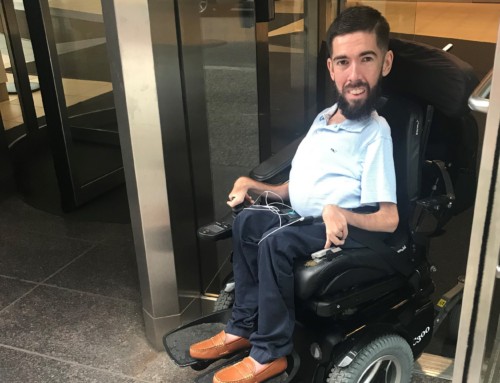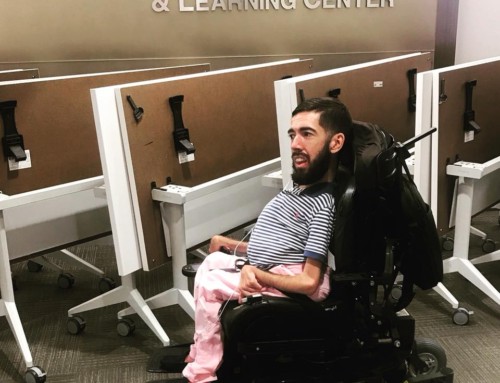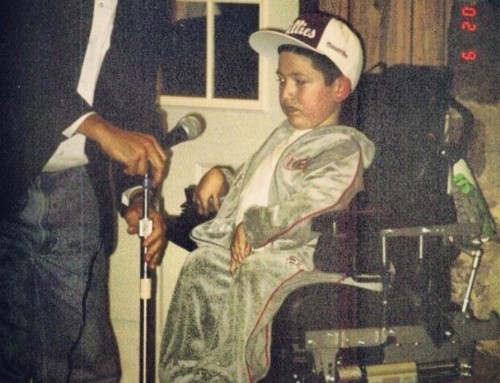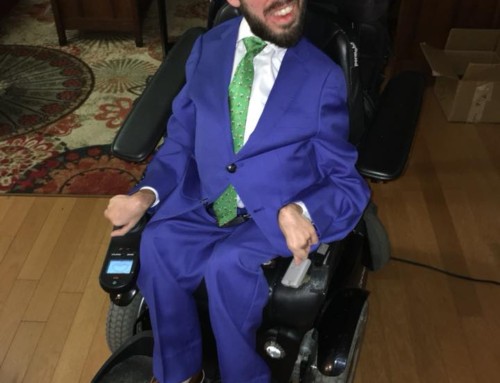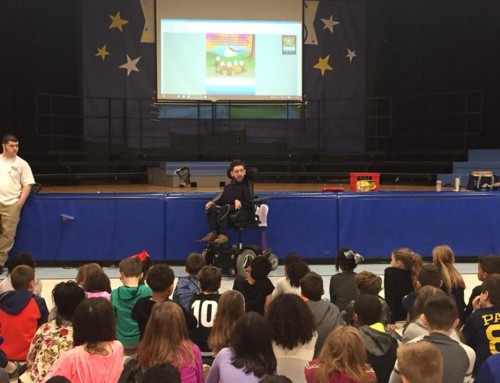Being a 3′ 1″ tall guy in a wheelchair definitely has its advantages in the music business. I never blended into the crowd of countless up and coming music producers. It was advantageous in garnering attention when bringing down the house in a beat listening seminar on South Beach in Miami, signing with Timbaland, being featured on Miami Ink, and being featured multiple times in major magazines and countless other instances which will be outlined in the autobiography I am writing (yes, that was a plug). The key here is this. While the intrigue that my physical appearance draws, it is what keeps me in the studio that matters at the end of the day.
By no means am I a musical prodigy. My skills have come about through years of hard work and countless hours and studio sessions. I started playing guitar when I was 13. I played a small electric guitar that was made for little kids as it worked better for my size. I spent my high school job income on putting better parts on the guitar and making it more of a serious instrument. My friends and I spent our teenage years recording music on small four track tape recorders and later on small digital recorders. I have never been able to work on the giant consoles found in most major studios. However, music technology seemed to follow my progression in the business. Since I could not play drums, I learned how to program drums on drum machines and later in sequencing software. I produced over 20 independent albums by the time I graduated college. No disrespect to those artists, but I had learned most of my skills on my own up to that point. My work was not as good as I knew it could be. The tools to make even better records became even more accessible as a record that once took an 88 channel console, racks of gear, and a giant control room can now be made in a small project studio on a MacBook Pro.
When I moved to Philadelphia in 2001 I surrounded myself with those in the industry that were masters at what they did. Learning everything I could from producers, engineers, artists, labels etc taught me quite a bit. As many records as I had made even up to that early point in my career, I was confident that my personality and uniqueness could get me in the door, but I had to make better records. Learning to take constructive criticism became essential.
What became more essential is making sure anything I receive I earn, and not given to me for any other reason. At one point in my career, I found it necessary to come to an agreement with my publicist that any and all press I would get needed to be based off of my work and not my physical situation. It is a common practice for the media to want to use the angle of a guy like me to paint a ‘triumph over tragedy’ picture. Anyone who knows or has ever known me has never found me to need or want to use that angle. I have never set out to specifically overcome adversity; I merely am proving that my physical differences are a non-issue when it comes to my work by example. Leading and proving by example is always more effective. The technology has opened up the creative possibilities just as my stressing integrity through my life and work serves to change minds on what it means to be a person with OI in the music business.
- Follow Simon on social media @simonilla
![[dis]ABLE Logo](https://disablethebrand.com/wp-content/uploads/2014/05/jimmy-logo-1-200.jpg)
